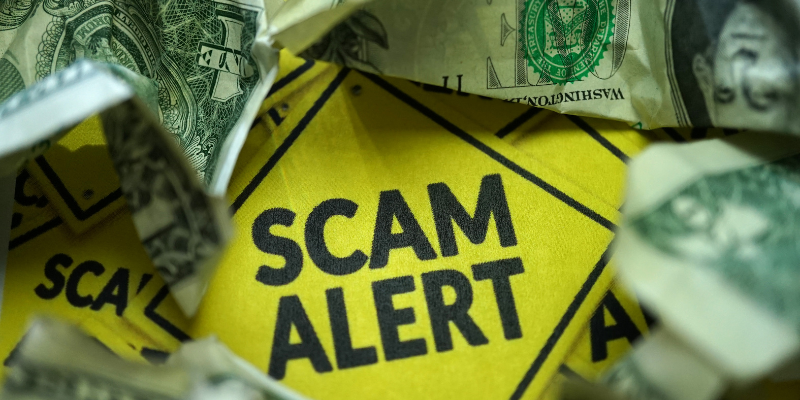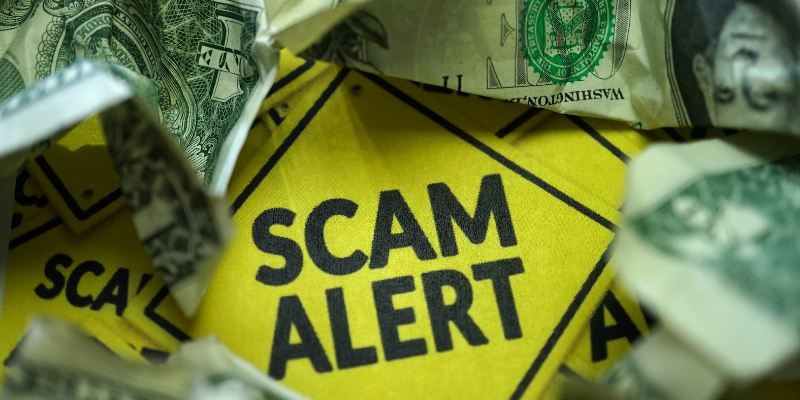Vacant land scams | How to protect yourself

Vacant Land Scams: How to Protect Yourself and Your Clients

A quick note for Realtors and Land Owners in Indiana. Vacant land scams are on the rise, and potential buyers, property owners, and real estate agents are all vulnerable. In this blog post, we will discuss how to identify vacant land scams and best practices to help you and your clients avoid falling victim to them.
How scammers operate
Scammers typically begin by combing through public records to identify vacant parcels of land and properties that are free of mortgages and other liens. Once they have identified a suitable target, they will pose as the property owner and trick a real estate agent into listing the property.
The scammer may offer to sell the property at a below-market price, which can be very tempting to real estate agents who are looking to close a deal quickly and easily. The scammer may also pressure the agent to keep the listing confidential and to avoid posting a "For Sale" sign on the property. This is because they want to avoid attracting the attention of the real property owner.
Once the scammer has secured a buyer for the property, they will typically request a remote closing using a remote notary. In some cases, the scammer may even impersonate the notary and provide falsified documents. Unfortunately, the fraud usually isn't discovered until after the money has been wired overseas to the scammer.
How to protect yourself and your clients
There are a number of things you can do to protect yourself and your clients from vacant land scams. Here are a few tips:
- Be wary of offers that seem too good to be true. If someone is offering to sell you vacant land for a significantly below-market price, there is probably a catch.
- Verify the seller's identity. Ask the seller to provide you with multiple forms of identification and proof of ownership. You should also conduct independent research to confirm that the seller is who they say they are.
- Insist on a face-to-face meeting. Don't agree to purchase vacant land from someone you've never met in person. This will give you a chance to assess the seller's credibility and to ask them questions about the property.
- Use a reputable title company. A good title company will be able to research the property title and identify any potential liens or encumbrances.
- Be wary of remote closings. If the seller insists on a remote closing, be sure to use a trusted notary service. You should also verify the notary's identity and credentials before proceeding with the closing.
What to do if you think you've been scammed
If you think you may have been the victim of a vacant land scam, it's important to take action immediately. Contact your local law enforcement agency and file a report. You should also contact the Federal Trade Commission (FTC) and the Internet Crime Complaint Center (IC3).
It's also important to work with your real estate agent to have the property listing removed and to take down any advertisements about the property. If you're already under contract to purchase the property, you may need to consult with an attorney to discuss your options.
Conclusion
Vacant land scams can be very costly and time-consuming for victims. By following the tips above, you can help to protect yourself and your clients from falling victim to these scams.
Tim Vicsik
RE/MAX 100
(574) 329-9587
Tim@TimVicsik.com
www.ND-Condos.com
Categories
- All Blogs (58)
- Best Time To Sell (3)
- Condos and Villas (13)
- Elkhart (31)
- For Buyers (41)
- For Sellers (22)
- FSBO (12)
- Granger (28)
- Guides (34)
- Housing Market (29)
- Housing Trends (2)
- Inspections (3)
- Lifestyle (12)
- Market Trends (7)
- Mishawaka (29)
- Mortgage (16)
- Notre Dame (29)
- Property Tax (3)
- South Bend (42)
- Things To Do (5)
- Waterfront (5)
Recent Posts










GET MORE INFORMATION


